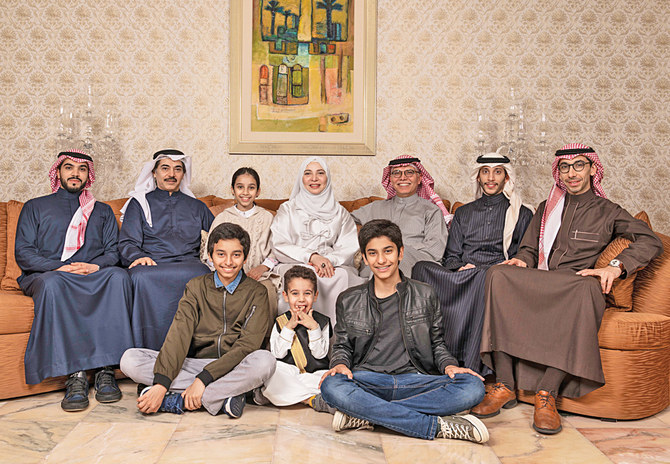Early on in life I learned that there is no one way to happiness, no one stereotype for accomplishment or self-satisfaction. This belief has been a drive for me to achieve more. I was born and raised in Alkhobar city; my father was a businessman and my mother was a housewife.
My life is rich with love provided by my family, my siblings, nieces and nephews and I’m enjoying motherhood and my family through nonconventional means.
My parents raised us as equals, they supported us, thought very highly of us and believed that we could excel in anything that we did. Our opinions were highly respected, but there were high expectations to be upheld.
My father once told me after finishing a novel on Marie Curie, “you know you’re no less than she is, you can be the Marie Curie in your own field. You have all it takes.”
I enrolled in the Imam Abdulrahman Al-Faisal University as I’ve always wanted to become a pediatrician. My parents raised my siblings and I with one motto in mind: “It’s not about you, it’s about how you can give back to your community.” My mother was not in favor of my chosen vocation. This is not to say that she went against me; in fact, I was given the freedom to decide my life path and my parents were supportive.
In those days, you had to apply to the university by physically providing all the necessary paperwork. As I stood in line to apply for medical school, I saw another queue. Inquisitive by nature, I went to ask what it was for. The administrators told me it was for the department of architecture and planning. Upon hearing that the course was just 5 years, I remembered my mother’s words, and within a minute, I decided to enroll in the department.
Two steps is all it took, stepping into the queue to the right and that decision changed my life’s path and helped make me who I am today. After graduating, I was hunting for jobs with no luck.
As I am not the type to lay back and do nothing, I volunteered to teach English at a local charity. One day, my father surprised me and said I had a job interview in Aramco.
I was shocked since I never applied and because it’s my father, he simply said that I applied for you because it’s time for you to give back. He told me: “The country invested in you, you are smart and you can take whatever job they give you. Who’s going to build the country but you and your generation?” Doors were opened.
I worked in my field for a while and that led me to the King Abdul Aziz Center for World Culture, also known as Ithra.
Twenty-five years later, I’m a still proud employee at Saudi Aramco and one of the first to bring the concept of Ithra to life. My role in Ithra began as an architect and was extended to be part of the creative team responsible for managing the creative program, its concept, and established the first Fablab at the King Fahad University for Petroleum and Minerals — the first in the Eastern Province. Building the concept of Ithra, or as I prefer to call it “the land of dreams,” was a group effort.
I joined with a dream and it was fate that we, the dreamers, were able to gather and meet at the right time and place, and most importantly we were given the opportunity to build something amazing.
This was a selfless act from our end because we wanted to see it come alive, to ensure that we played our part in giving back to a community that helped us grow to who we are today.
Ithra was a wonderful opportunity and a joyful experience that added so much value to my life. What comes next is going to also be part of my journey of growth, to explore our identity.
My life has been a whirlwind of opportunities. One lesson I learned was to never underestimate an opportunity no matter how small it was. You never know what you’ll get out of it.




























